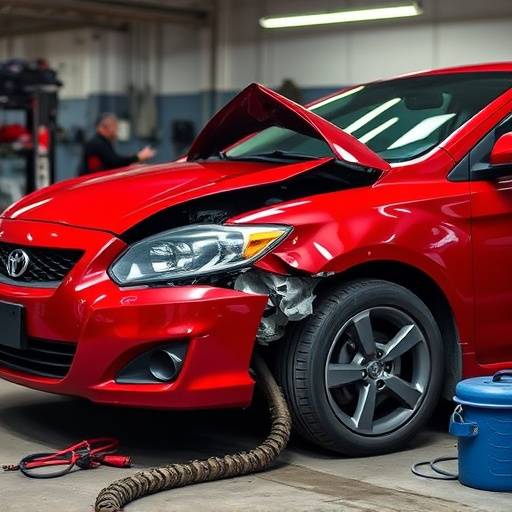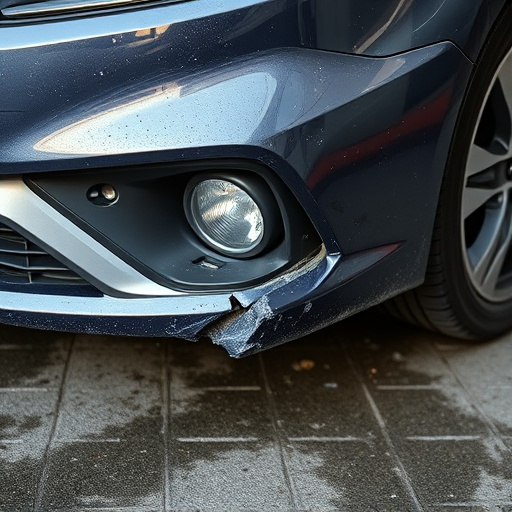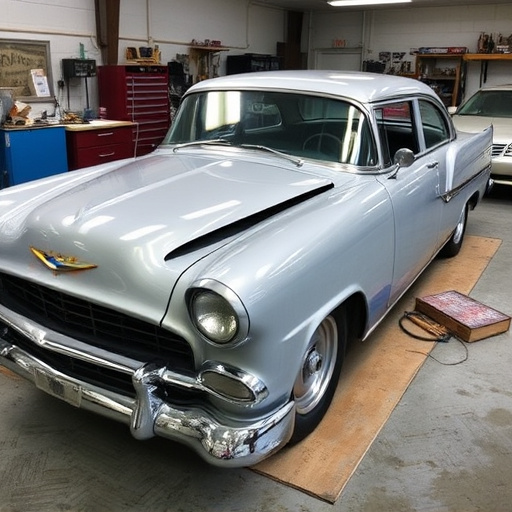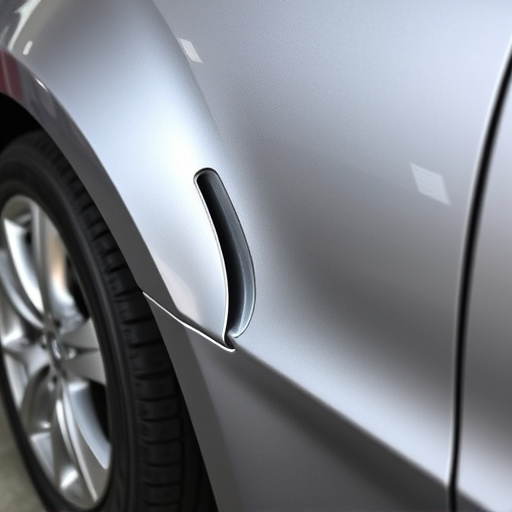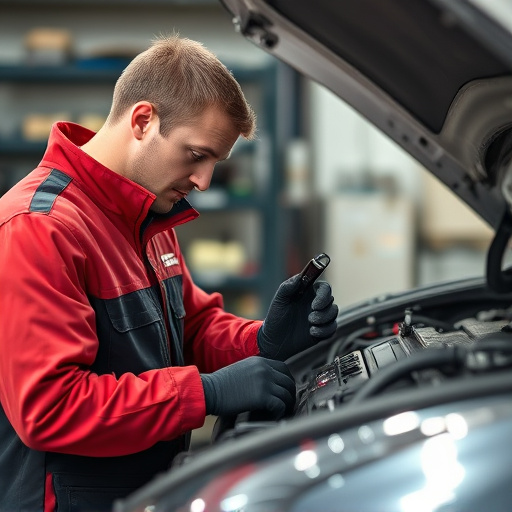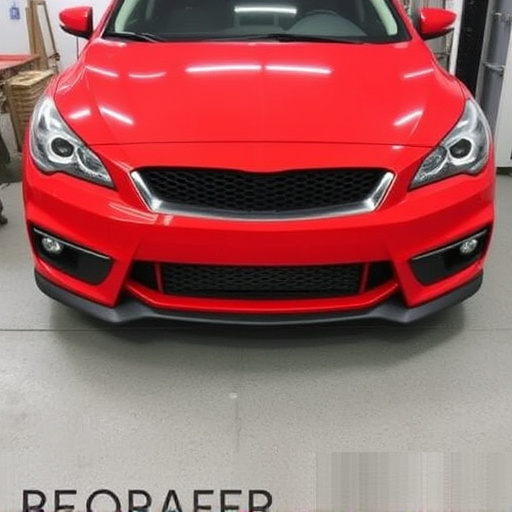Body panel insulation is crucial for vehicle comfort and aesthetics, protecting paintwork from temperatures and minimizing noise. When repairing cars like Mercedes-Benz, consider environmental factors. Material choices include mineral wool, foam, and synthetic blends, each with unique benefits. For collision repair, select materials based on vehicle design, thermal goals, cost, ease of installation, and compatibility, ensuring optimal performance, durability, and comfort.
Choosing the right body panel insulation materials is a key step in enhancing vehicle performance and efficiency. Today, with a plethora of options available, understanding your specific needs becomes crucial. This article guides you through the process by first explaining the importance of body panel insulation and its impact on vehicle dynamics. We then explore common insulation materials, delve into critical selection factors, and offer insights to help you make an informed decision, ensuring optimal results for your automotive project.
- Understanding Body Panel Insulation Needs
- Exploring Common Insulation Materials
- Factors to Consider When Choosing Materials
Understanding Body Panel Insulation Needs
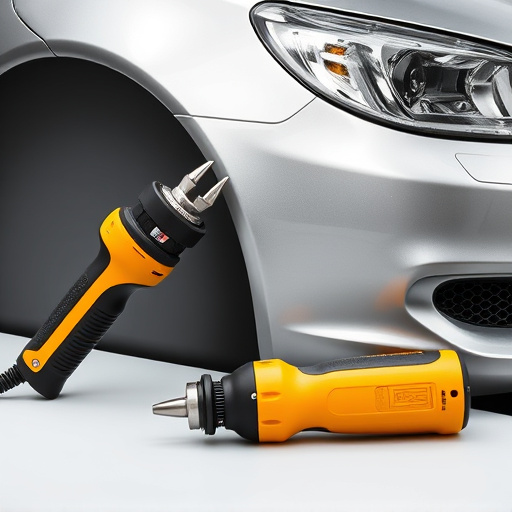
Understanding Body Panel Insulation Needs
The importance of body panel insulation cannot be overstated, especially in the automotive industry where vehicle bodywork is exposed to varying weather conditions. Proper insulation ensures that the interior remains comfortable, reduces noise levels, and minimizes the impact of extreme temperatures on the paintwork. For example, in regions with cold winters, insulation helps prevent condensation and ice buildup inside the vehicle, while in hot climates, it keeps the cabin cool and prevents excessive heat absorption.
When considering body panel insulation, it’s crucial to take into account factors like the type of vehicle (e.g., Mercedes-Benz repair), intended use, and environmental conditions. For those interested in paintless dent repair techniques, adequate insulation can enhance the overall aesthetics and performance of the bodywork. By addressing these needs, car owners can ensure their vehicles provide a comfortable and efficient ride for years to come.
Exploring Common Insulation Materials
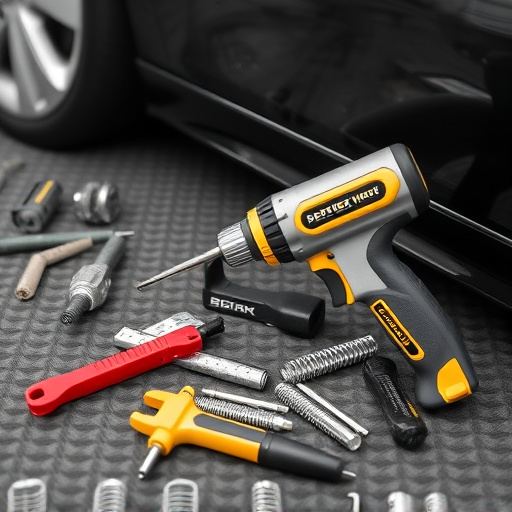
When it comes to choosing the right body panel insulation for your automotive restoration or autobody repairs project, understanding the available materials is key. Common options include mineral wool, foam, and synthetic blends, each with unique properties catering to various needs in car repair shops. Mineral wool, known for its fire resistance and sound-absorbing capabilities, is a popular choice for both structural integrity and noise reduction.
Foam insulation, lightweight yet robust, excels in thermal insulation, making it ideal for maintaining optimal cabin temperatures. Synthetic blends combine the best of both worlds by offering superior strength and flexibility alongside excellent heat retention. These materials are designed to withstand the rigors of autobody repairs while ensuring a seamless finish, contributing to the overall quality of the vehicle’s restoration.
Factors to Consider When Choosing Materials
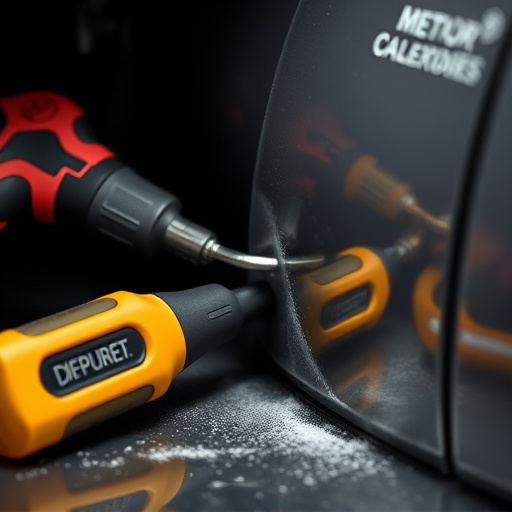
When selecting materials for body panel insulation, several factors come into play to ensure optimal performance and durability during car collision repair. The primary consideration is the specific application and the type of vehicle, as different cars have varying design complexities and material requirements. For instance, modern vehicles often feature intricate designs with diverse panel shapes, which necessitate specialized insulation materials that can accommodate these unique geometries without compromising structural integrity.
Additionally, the choice of material should align with the desired level of thermal comfort within the vehicle. Insulation plays a crucial role in maintaining an ideal cab temperature, thereby enhancing driver and passenger comfort. This is particularly relevant for regions with extreme climates, where efficient insulation can significantly improve energy efficiency. Other considerations include cost-effectiveness, ease of installation, and compatibility with other components, such as auto glass repair or collision center operations.
Selecting the appropriate body panel insulation materials is a crucial step in enhancing vehicle performance and efficiency. By understanding your specific needs, exploring various options, and considering key factors like cost, durability, and environmental impact, you can make an informed decision. Remember, the right body panel insulation not only contributes to a quieter ride but also plays a vital role in protecting your vehicle’s interior from temperature extremes, ultimately enhancing its overall value and longevity.
